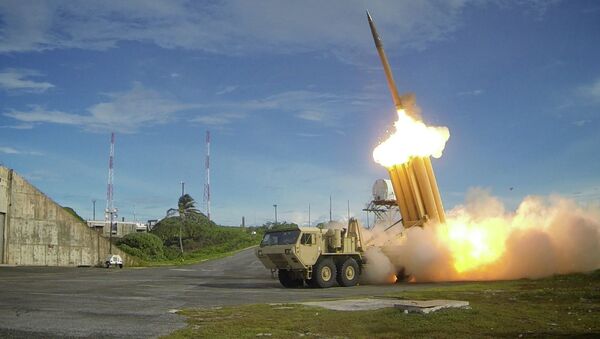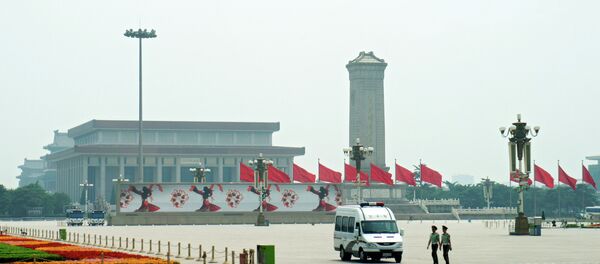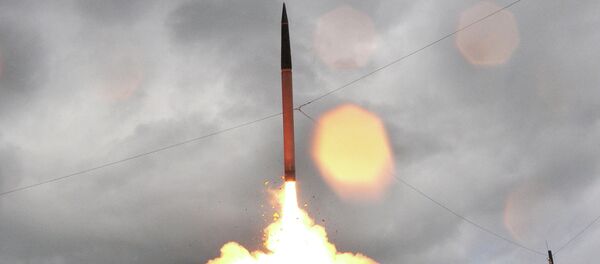"The government should decline to deploy THAAD, which would destroy peace in Northeast Asia, including the Korean Peninsula and hurt relations between South Korea and China," said the alliance of around 120 civic groups at a news conference on Thursday, reports Yonhap. "The military and economic feuds to be created due to the deployment of THAAD on the peninsula would damage all national interests and goals, such as inter-Korean peace and reunification."
The Terminal High Altitude Area Defense system [THAAD] is an anti-ballistic missile system used by the US army, with each system costing around $800 million; the US has bought six, and manufacturer Lockheed Martin has said that work on a seventh will begin this year. As well as truck-mounted launchers and receptors, each THAAD battery contains a Ground-Based Radar [GBR], able to carry out surveillance at ranges of up to 1000 kilometers to identify and track targets. It can also intercept ballistic missile targets at a range of more than 200 kilometers.
China has expressed its security objections to such long-ranging surveillance capabilities, and on Monday China's Assistant Minister of Foreign Affairs Liu Jianchao, after a meeting with South Korean counterpart Lee Kyung-soo in Seoul, told journalists: "We had very candid and free discussions over the THAAD issue. It would be appreciated if Seoul takes account of China's concerns and worries."
On his visit to Seoul on Tuesday, US Assistant Secretary of State Daniel Russel weighed in with his observations: "I find it curious that a third country would presume to make strong representations about a security system that has not been put in place and that is still a matter of theory," Russel told journalists.
Last week US Forces Korea confirmed reports it had been carrying out site surveys in South Korea in the event of a deployment of THAAD, which would augment the US force of roughly 28,500 US troops already stationed in the country.




